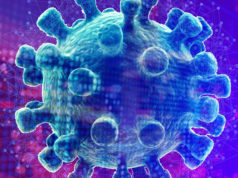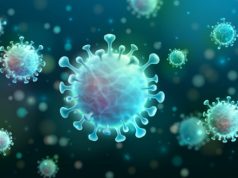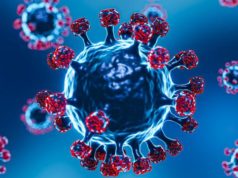[Updated] The Ministry of Education and the Ministry of Health are holding a press conference this morning [Sept 1] to discuss the Covid-19 back-to-school protocols and saliva screening programme.
The Minister said, “during this phase our schools have many of the same protocols as last year however there are some changes.
“As the Minister of Health outlined, schools will continue daily safety measures such as the entry protocols, physical distancing, hand and respiratory hygiene, good ventilation, and disinfecting of equipment, furniture and high touch areas.
“Two changes that I am sure that our students will be happy about are physical education and field trips.
“For physical education each class bubble is to remain separate from other bubbles for indoor classes; however two class bubbles in the same year-level can have outdoor P.E. classes together.
“Also, we know that our students love the opportunity to get out and explore, and in this phase field trips have been allowed to resume with one class bubble [per mini-bus]. Guidelines will include wearing face masks and practicing good hand hygiene, along with good ventilation in the mini-bus. Students and staff must follow the protocols and remain separate from any other group/individual at the field trip location.
“A significant change from how we ended the last school year is that both staff and students at the P4 to S4 levels will be required to wear masks when indoors.
“As the Minister of Health stated, wearing a mask while indoors is an essential layer of protection to prevent the spread of the virus and while some parents/guardians do not feel that this is ideal, for the reasons provided it is necessary that we comply with this protocol.”
Minister Wilson’s remarks:
Good morning.
Some parents have raised concerns regarding the mask-wearing policy for students while in school. Some feel that our coronavirus testing in schools is sufficient to ensure the safety of our students and staff, and they are requesting that children be allowed to remove their masks while sitting at their desks.
Unfortunately, testing alone will not protect students, teachers and staff, and removing their masks while sitting could increase transmission.
I want to remind members of the public that there is a difference between detecting the coronavirus and preventing the spread of coronavirus.
Testing for the coronavirus is designed for early detection, not prevention. Wearing a mask while indoors is an essential layer of protection to prevent the spread. Again, there is a distinct difference between detection vs prevention.
As children head back to the classroom, in the middle of a serious outbreak, the Ministry of Health is working closely with the Ministry of Education to protect the health and safety of the students, teachers and staff in all of our islands schools, and we are using multiple layers to provide the greatest level of protection.
Our layered approach is similar to wearing a hat, scarf, gloves and a warm coat in freezing weather – each layer provides an added level of protection from the cold.
The pandemic is far from over, and while the vaccine is the most effective protection available, masks, when worn correctly, effectively reduce the spread of the coronavirus in schools.
To avoid scenarios where classes go remote just as the school year begins, as I said earlier, our approach to keeping our children, teachers, and staff safe from the coronavirus is a layered approach, which includes the following.
- Encouraging all eligible teachers and students to be fully vaccinated
- Encouraging all families to participate in the saliva screening programme
- Maintaining appropriate physical distancing – at least three feet between students within classrooms
- Avoiding poorly ventilated areas
- Frequent hand-washing
- Covering a cough or sneeze
- Cleaning and disinfecting touchpoints
- And, of course, consistent and correct mask use inside our schools, regardless of vaccination status.
Masks significantly protect both the persons who are wearing them and the people around them. Wearing a mask will also help decrease the number of symptomatic respiratory illnesses that children have.
This is especially important for students as:
- Children under 12 are unvaccinated,
- Children have been involved in the start of the present outbreak driven by the delta variant which now has over 200 positive cases, and,
- Infected children can take the virus “home” to unvaccinated friends and relatives.
Over the summer, we had four [4] camps and childcare settings affected with positive cases, mostly the delta variant which is highly transmissible. In quite a few instances, these children went home and unknowingly passed the infection to someone else in their household, and, subsequently, this led to positive cases in workplace settings as well.
Similar clusters of cases in schools can occur if protocols are not followed, such as mask-wearing.
The Government of Bermuda is taking a cautious approach, which is prudent at the start of the school year, given that we are currently meeting the criteria for community transmission at concerning levels.
Again, the main goal of these prevention measures is to protect students, teachers and staff, and provide a safe learning environment, in support of the Ministry of Education’s mission to start in-person learning, as this is best for our students.
I cannot stress enough that our children’s well-being and safety is our main priority.
We believe that our prevention strategies, if strictly adhered to, can maintain in-person learning, even during high transmission levels in our community.
As a community, we all want what is best for our children, and in-school learning is certainly the desired objective.
In closing, I remind all teachers, staff and children that they must stay home if they feel unwell or have symptoms.
Symptoms, which can easily be associated with allergies or a mild cold, are possible coronavirus symptoms. This includes sore throat, stuffiness, tiredness, headaches, and coughing and sneezing.
If you have questions or feel unwell, please call the COVID helpline 444-2498 or visit gov.bm/coronavirus.
Thank you.
Minister Rabain’s remarks:
Good Morning Bermuda:
As we prepare to reopen Bermuda’s Public Schools on Thursday, September 9th we are excited about welcoming back our pre, primary, middle, and senior students as safely as possible.
Although we are still navigating a global pandemic, both the Ministry of Health and the Ministry and Department of Education have been diligently working to ensure that the safety of our students and staff is thoroughly prioritised in our safety and health protocols and guidelines.
Whilst there has been some uneasiness in the community regarding the measures we are taking, I want to thank the Minister of Health for clarifying the importance of these measures.
I completely relate with the ‘COVID-19 fatigue’ that many of us are experiencing as we are eager to move beyond this pandemic, however we cannot allow this feeling to catch us with our guard down by lowering our defenses.
I reassure you that both the Ministry and Department of Education want our schools to remain open as during the past 2 academic years our students and staff have endured enough interruptions.
We recognise that when children are not in school full time and engaged in face-to-face learning, this is directly associated with a decline in health, well-being, and educational achievement.
Further to this, we also recognise the strain that this puts on parents/guardians, their households, our economy, as many are unable to work when this happens, and our country as a whole.
Thus, we have to push forward with doing what is best for all of our students, staff, and country.
The main changes made to the protocols is that they are now based on the status, or phase, that the country is in with respect to case data.
Presently, Bermuda is in Phase 3 – Imported/Sporadic Cases and during this phase our schools have many of the same protocols as last year however there are some changes.
As the Minister of Health outlined, schools will continue daily safety measures such as the entry protocols, physical distancing, hand and respiratory hygiene, good ventilation, and disinfecting of equipment, furniture and high touch areas.
Two changes that I am sure that our students will be happy about are physical education and field trips.
For physical education each class bubble is to remain separate from other bubbles for indoor classes; however two class bubbles in the same year-level can have outdoor P.E. classes together.
Also, we know that our students love the opportunity to get out and explore, and in this phase field trips have been allowed to resume with one class bubble [per mini-bus]. Guidelines will include wearing face masks and practicing good hand hygiene, along with good ventilation in the mini-bus. Students and staff must follow the protocols and remain separate from any other group/individual at the field trip location.
A significant change from how we ended the last school year is that both staff and students at the P4 to S4 levels will be required to wear masks when indoors.
As the Minister of Health stated, wearing a mask while indoors is an essential layer of protection to prevent the spread of the virus and while some parents/guardians do not feel that this is ideal, for the reasons provided it is necessary that we comply with this protocol.
To review all of the COVID-19 protocols by phase, we encourage you to visit our website www.moed.bm and they will also be shared with staff and parents/guardians.
As you should recall, as another measure of safety last year we introduced the Saliva Screening Programme and will continue with the programme this school year.
The Saliva Screening Programme
Through this programme we are working to mitigate some of the unpredictability of the COVID-19 virus. The Molecular Diagnostic Lab [MDL] organises students at each school into groups for bi-weekly screening, with each student being tested once per month.
Screening groups of students bi-weekly will provide the MDL with samples across classrooms, and it will help mitigate any COVID-19 risks in the school on an ongoing basis.
Once the MDL secures the saliva samples, the results are available within 24 hours. The results of the saliva tests are sent to parents/guardians, not to the school principal or the Department of Education.
If a positive test is detected, the result is sent to the individual’s physician or GP and followed up with a nasal pharyngeal test. The Department of Health will alert the Department of Education of a positive result and then conduct a risk assessment at the affected school. The Department of Health will use this assessment to determine what additional measures will be take at the affected school.
Staff who consent to participate in the programme will be scheduled for screening based on the frequency of their interactions with others. For example, a member of staff who interacts with many different students and other staff would be screened weekly. Staff members who have contact with only some students and some staff would be screened every two weeks. Lastly, those staff with fewer interactions such as with only one class, would be screened once per month.
Routine screening of staff and students increases the chances of detecting the virus at a moment when new infections are occurring or have just occurred. It also helps to identify anyone who may have contracted the virus and may be asymptomatic.
Screening benefits our schools as well as our country as a whole because it will assist in avoiding a large scale outbreak in our school system that results in school closures.
We encourage all parents to sign their children up for the programme by completing the parent consent form as no student can participate in the screening program without parent consent.
We are strongly advising parents to consent to the screening program for their children. With our current COVID status and the fact that children are showing to be as affected by this as adults, the screening program is a much needed additional layer of protection. The saliva screening is a non-invasive process and from our data, the students are not opposed to it. Parents please help us keep our schools safe and fill out the consent form.
At this time, we are going to play a video of the screening so that you can have an understanding of the process.
Plays Video: Saliva Screening with Supervision
It is a very simple screening method, and informational videos on all 3 screening methods can be accessed on the Ministry of Education’s YouTube, Facebook, and Instagram accounts.
While some may feel that these protocols and guidelines are not ideal, the safety and health of our students and staff is something that we should not be willing to sacrifice.
Nor should we find it acceptable to have our students and staff experience constant disruptions to learning and teaching. Our students deserve to be in school, with their teachers, and their peers, learning and socialising so that they can thrive well into their futures.
Having our parents/guardians forced to take on the role of educators and our children isolated, is far less ideal, with much longer term implications.
It is our hope that parents/guardians, teachers, school staff, and our country as a whole will continue to support what is necessary and best for our students as they are our future and it is imperative that we continue to make decisions that are in their best interest.
The full Covid-19 Phases for School Protocols follows below [PDF here]:










